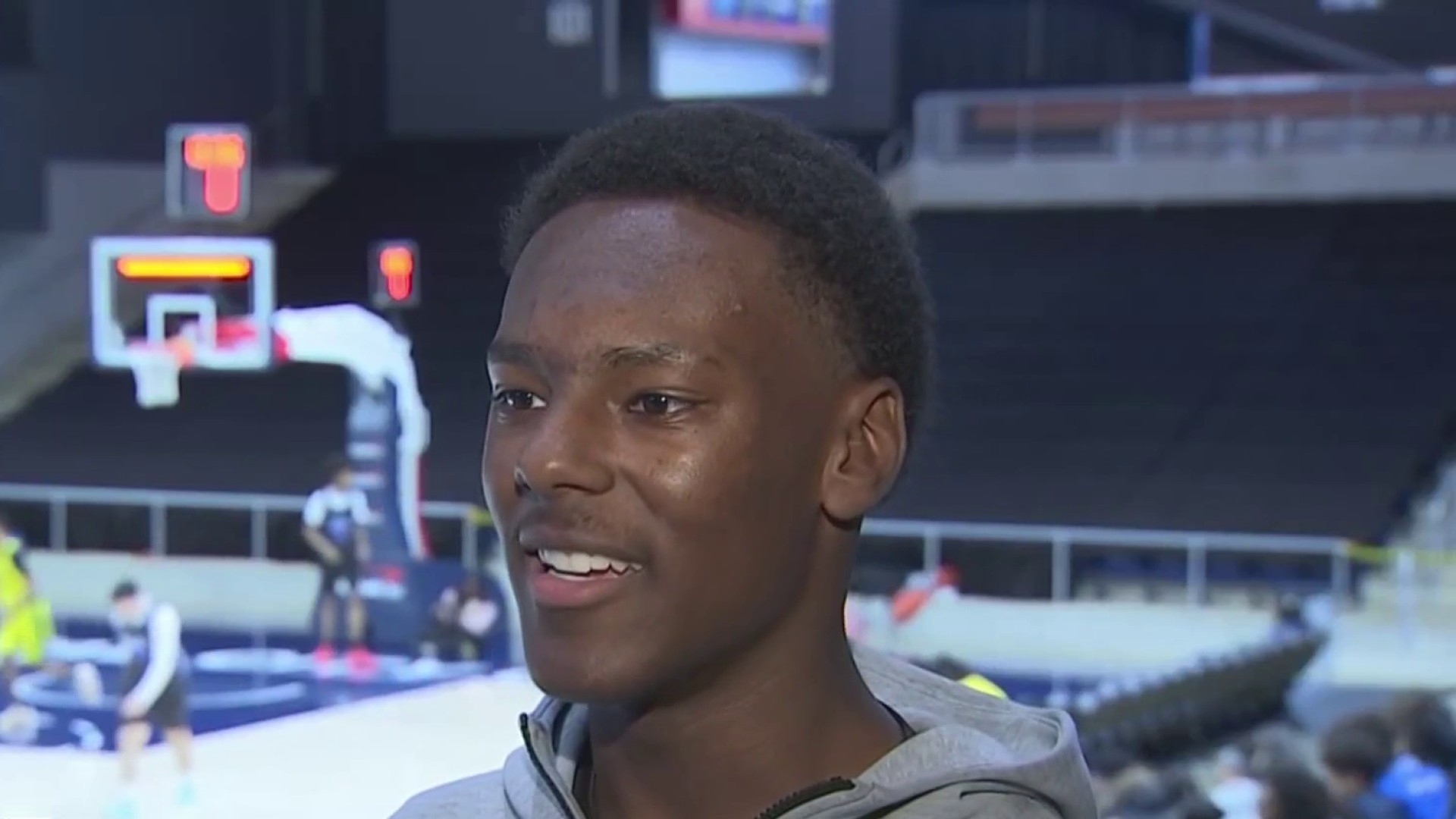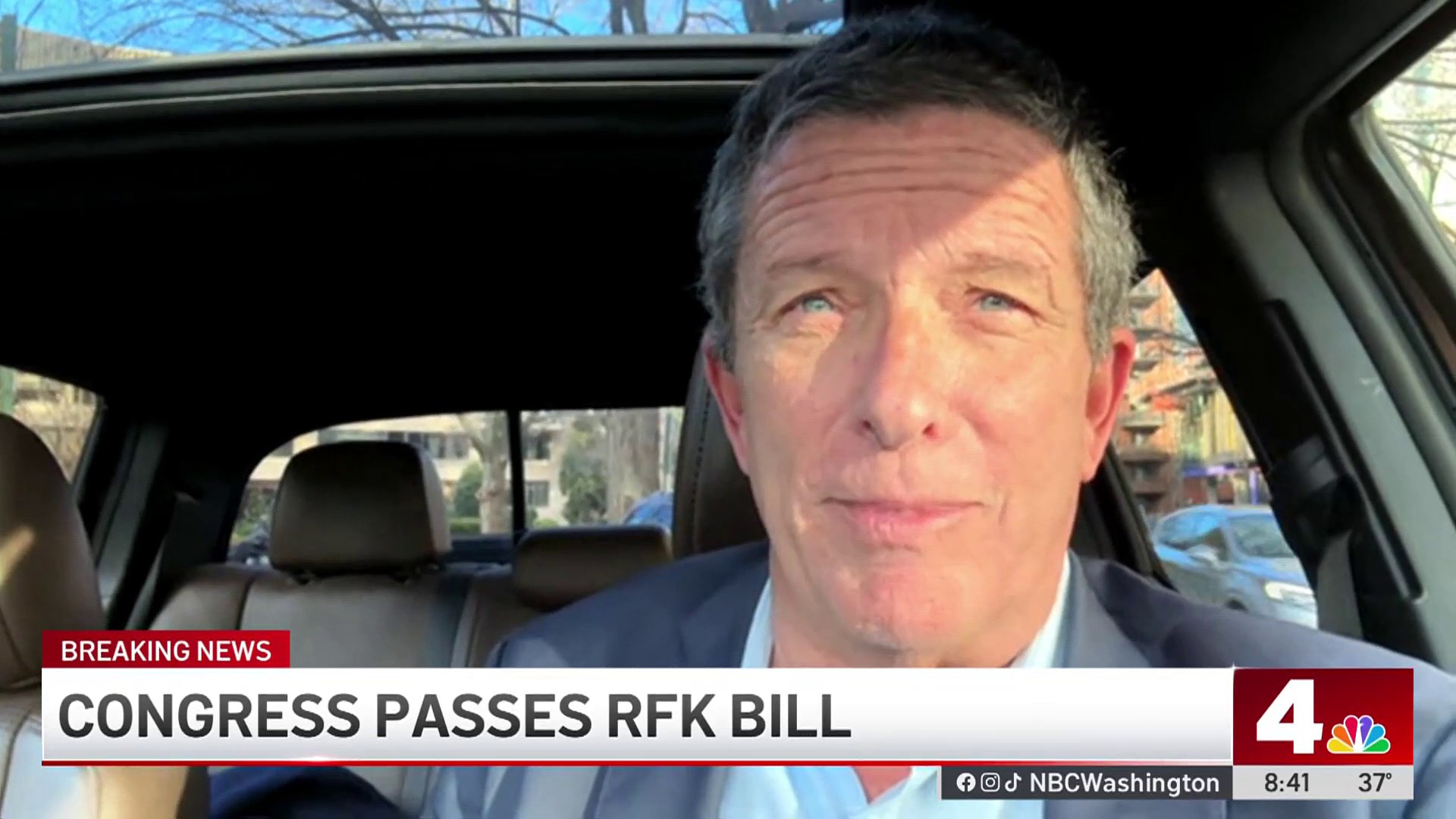Mei Xiang, the National Zoo's giant panda, is proving to be a doting mom. Today, her zookeepers couldn't tempt her to eat a snack; instead, she preferred to keep cuddling her days-old cub.
Avoiding food and drink is typical for female giant pandas who have just given birth.
But her keepers tried. They offered up some of her favorite treats: diluted apple juice, a sweet potato and a pear. Mei Xiang licked the sweet potato, but wouldn't eat. She did drink some apple juice.
The entire time that she was drinking, she did not put her cub down. Zookeepers said they could hear the cub squawking, and that it sounded healthy.
Mei Xiang gave birth to the cub Friday afternoon after approximately two hours of labor. The zoo said a second cub birthed by the giant panda the next day was stillborn.
Zoo personnel have examined the cub once, on Sunday. But other than that Mei Xiang has kept her cub close.
While they won’t know the sex of the cub for another couple of weeks, they were able to take vital sign readings Sunday. The cub weighed 137 grams or 4.8 ounces, had good heart and lung sounds, and good signs for intestinal function.
Mei Xiang was artificially inseminated twice March 30 after failing to breed naturally with the zoo's male panda Tian Tian. It's not clear who the proud father is: Mei Xiang was inseminated with previously frozen semen from both Tian Tian and Gao Gao, a panda at the San Diego Zoo.
Local
Washington, D.C., Maryland and Virginia local news, events and information
Mei Xiang has given birth to two cubs in the past. A female cub, born last September, lived only six days. Her birth was a surprise; she had not shown up on any ultrasounds. An autopsy determined she may have been born prematurely. Mei Xiang's only surviving cub, Tai Shan, was born in 2005 and now lives in China.
According to an agreement with the Chinese government, the cub will stay at the National Zoo for four years and will then be sent to China.
MORE ON NBCWASHINGTON.COM
- DC Zoo on 24-Hour Panda Pregnancy Watch
- DC Zoo: Panda Behavior Hints at Possible Pregnancy
- Pregnant Panda? National Zoo Temporarily Closing Part of Panda House
- Panda Pregnancy Watch: Back On for 2013
- National Zoo's Upgraded Panda Cams Go Live
- National Zoo Inseminates Giant Panda
- Zoo: Mei Xiang Settling Back Into Routine
- Panda's Distress Call
- National Zoo Panda Cub Dies



